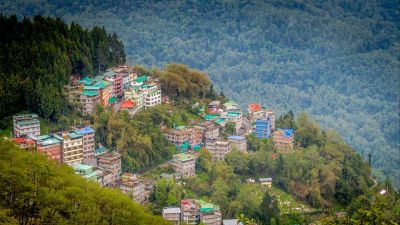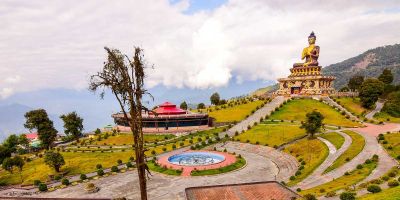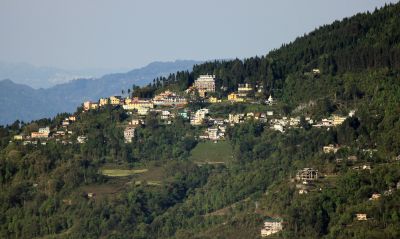Sikkim: A Lesson in Biodiversity Conservation
Sikkim, nestled in the northeastern part of India, is a paradise for nature enthusiasts and biodiversity lovers. This small state is bordered by Tibet to the north, Bhutan to the east, and West Bengal to the south. Sikkim is renowned for its stunning landscapes, tranquil lakes, lush valleys, and vibrant monasteries. However, what makes this place truly exceptional is its commitment to biodiversity conservation.
Biodiversity Hotspot
Sikkim is often referred to as a "biodiversity hotspot" due to its rich and diverse range of flora and fauna. The state is home to more than 5,000 species of flowering plants, over 500 species of birds, and numerous rare and endangered species. The varying altitudes and climatic conditions within Sikkim create a perfect environment for the thriving of different ecosystems.
One of the main reasons behind Sikkim's remarkable biodiversity is its protected areas. The state has established several national parks and wildlife sanctuaries to preserve its unique ecological heritage. Kanchendzonga National Park, spread across an area of 850 square kilometers, is a UNESCO World Heritage site and the pride of Sikkim. It is home to the snow leopard, Himalayan black bear, red panda, and many other endangered species.
Sustainable Tourism
Sikkim has also embraced sustainable tourism practices to ensure minimal impact on its fragile ecosystems. The state government, in collaboration with local communities, has implemented strict regulations to protect the environment and promote responsible tourism. Local homestays and eco-friendly accommodations have been encouraged to support the local economy and reduce the carbon footprint caused by conventional hotels.
Visitors to Sikkim are encouraged to engage in eco-trekking and explore the state's natural wonders with trained local guides. This not only helps in raising awareness about environmental conservation but also provides income opportunities for the local communities.
Efforts in Conservation
Sikkim has taken impressive initiatives to conserve its biodiversity and preserve its natural resources. The state was the first in India to adopt organic farming practices throughout its agricultural land. This move not only promotes healthier and chemical-free produce but also safeguards the soil fertility and overall ecosystem.
The state has banned the use of plastic bags, promoting the use of eco-friendly alternatives. This regulation helps in preventing pollution of rivers, lakes, and forests, ensuring the preservation of the natural habitat of numerous species.
Furthermore, Sikkim has made significant efforts to protect its forests through reforestation programs. The state aims to increase the forest cover to 60% of its land area, thereby creating a sustainable and balanced ecosystem. These initiatives not only combat climate change but also provide a habitat for countless species.
Conservation Success Stories
Sikkim's commitment to biodiversity conservation has yielded remarkable success stories. The population of the endangered snow leopard, once on the brink of extinction, has started to show signs of recovery. The efforts made to protect this elusive and magnificent big cat have played a vital role in its population growth.
The red panda, another charismatic species found in Sikkim, has also received special attention. Conservation programs focused on protecting its habitat have helped in stabilizing its population. Sikkim's efforts in saving these elusive creatures have gained international recognition and have played a pivotal role in their overall preservation.
Conclusion
Sikkim sets an inspiring example for the rest of the world when it comes to biodiversity conservation. Its commitment to sustainable tourism, organic farming, and environmental protection is truly commendable. By taking these steps, Sikkim ensures that future generations can experience the state's incredible natural wonders and understand the importance of preserving our precious ecosystems.
So, if you are a nature lover and wish to immerse yourself in the lap of biodiversity, Sikkim should be on the top of your travel list. Witness the magic of this beautiful state while contributing to its ongoing conservation efforts. Share this post with your friends and family to spread awareness about Sikkim's remarkable biodiversity and the importance of conservation.
Disclaimer : The information provided in this blog is for general informational purposes only. While we strive to keep the content accurate and updated, TravelSetu assumes no liability for errors or omissions. If you believe any part of this blog infringes your rights or causes concern, please notify us immediately at info[at]travelsetu[dot]com so that appropriate action can be taken.




















